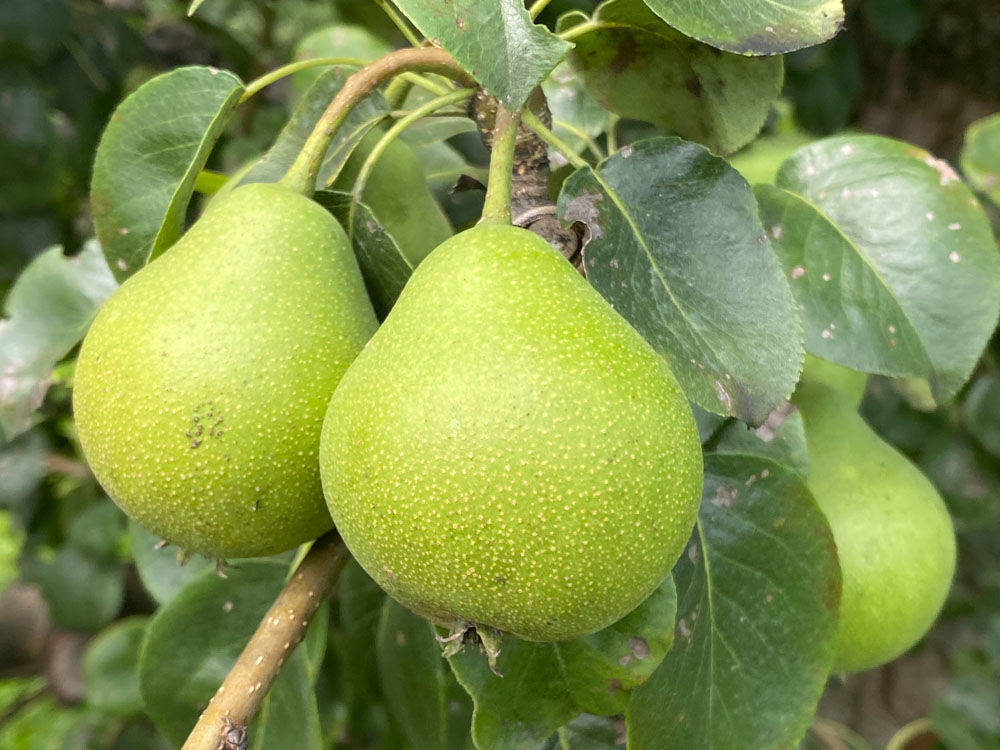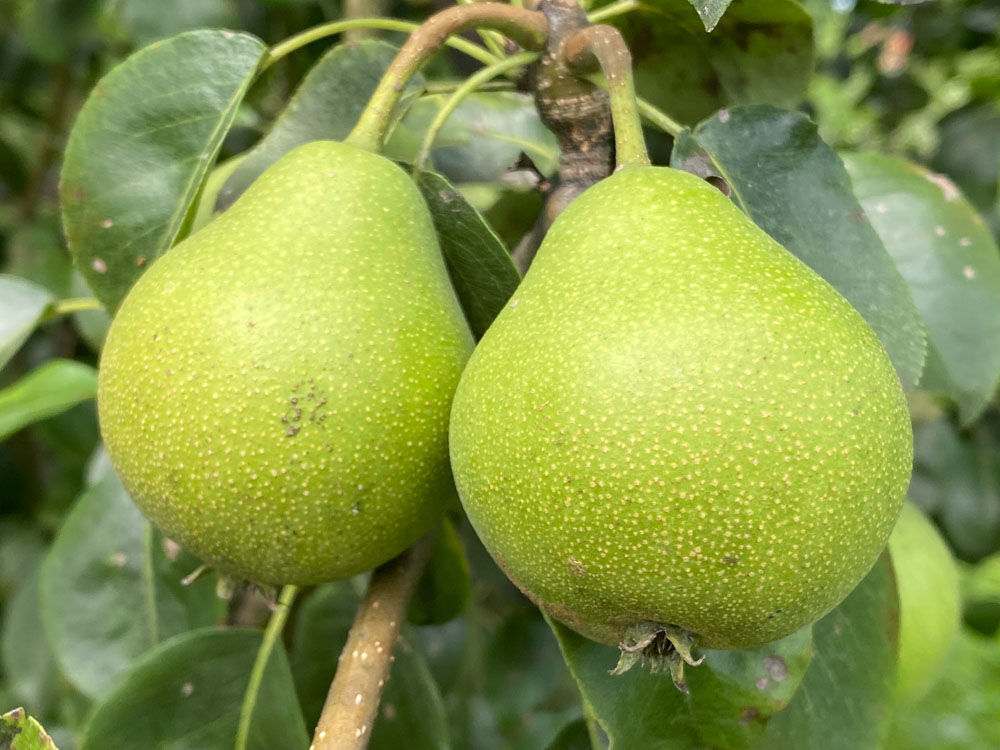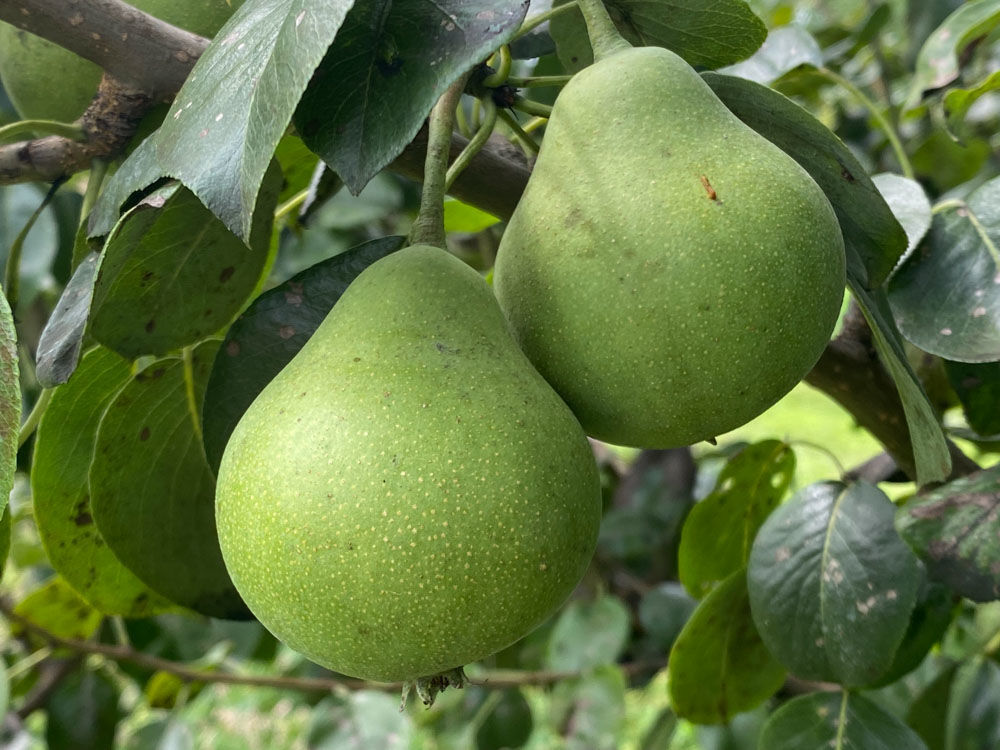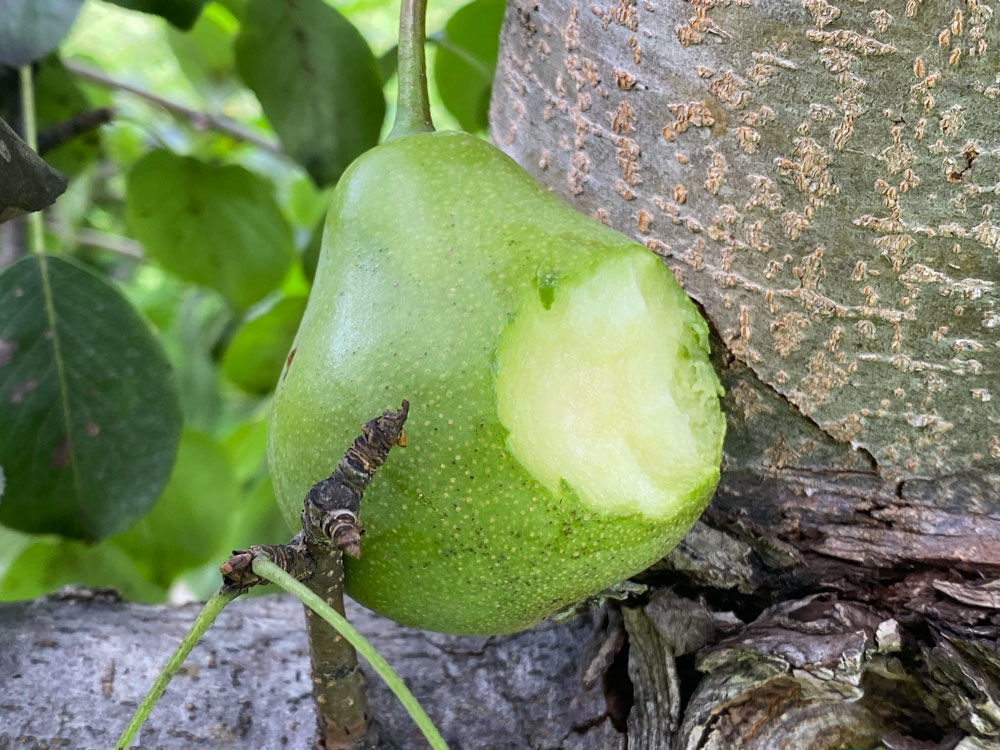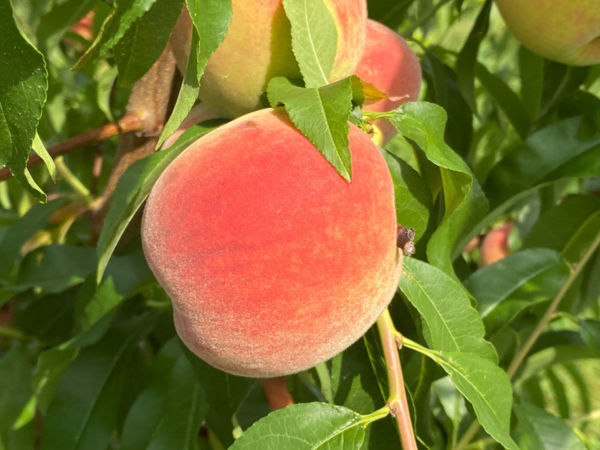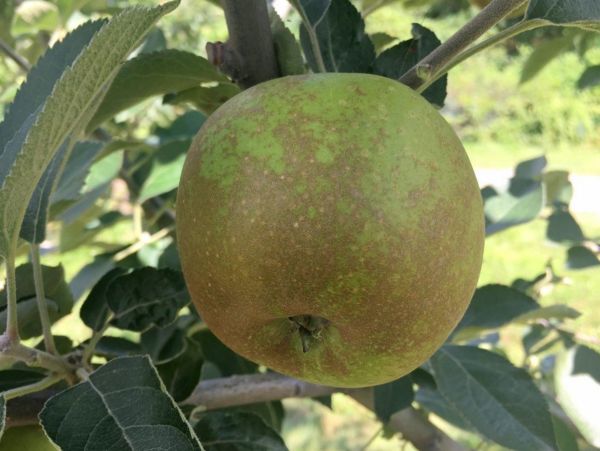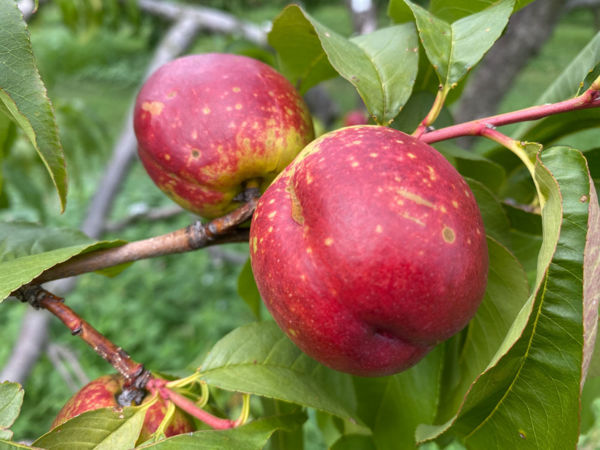An attractive, highly disease-resistant apple, ideal for organic growers.
Butt Pear Scionwood (Spring 2024)
A late season perry pear with high tannins. Also known as Norton Butt.
Butt grows on a vigorous tree with narrow crotch angles. It is a heavy producer, but it is slow to come into production and does tend to biennialism. This pear is used exclusively in cider production; it is not suitable for fresh eating.
The late-season fruit is small and globular with lemon colored skin that is dotted with russeting. It is remarkable for the length of time it will sit on the ground without rotting, giving rise to the saying "Gather your Butts one year, mill them the next, and drink the year after." It can actually be milled four to ten weeks after harvest. The juice is astringent and fruity. It is slow to ferment but produces a high quality cider. This pear is a popular cultivar among perry makers; it is most extensively cultivated around Ledbury in Herefordshire, England. (From Brooks and Olmo: juice acidity 0.54, tannins 0.32, specific gravity 1.056.)
Volume Pricing
| Quantity | Butt Pear Scion |
|---|---|
| 1 | $12.00 |
| 2-5 | $7.00 |
| 6-10 | $6.00 |
| 11-99 | $5.00 |
| 100+ | $4.00 |
The Fruit
Fruit Type
Category: Pear
Subcategory:
Perry, Cold-Hardy
Fruit Uses & Storage
Uses: cider
Cider classification: bittersharp
Storage duration: (approximate, depending on storage conditions)
Fruit Appearance
Skin color: yellow
Flesh color: off-white
Fruit Origins
Parentage: unknown
Origin: Norton, England
Introduced in:
Introduced by:
The Environment
Calendar & Geography
USDA zones: 4 - 8
Chill hours: Not yet determined
Ripening date: Sep 09 (approximate, in New York State) + 20 days after Bartlett
Diseases & Pests
glossary
Pear Scab: Susceptible
Pollination
Pollination Factors
glossary
Bloom group: 3
Is it self-fertile? N
Is it fertile? Y
Ploidy: Diploid
Pollination Partners
This table shows the first few results from a full search for pollenizers of Butt Pear. Please see our Pollenizer Search to run other queries and read how the application uses various factors. Also read more about fruit tree pollination.
| Tree | Currently in Stock |
|---|---|
| Winnal's Longdon Pear | 0 |
| Brandy Pear | 0 |
| Yellow Huffcap Pear | 0 |
| Gin Pear | 0 |
| Hendre Huffcap Pear | 0 |
See all pollination matches for Butt Pear
Featured Products
A few things we're loving right now...
A full-flavored, freestone white peach.
One of America's oldest apples, good for storage, baking, and cider.
A widely-grown, large, yellow-fleshed nectarine.









